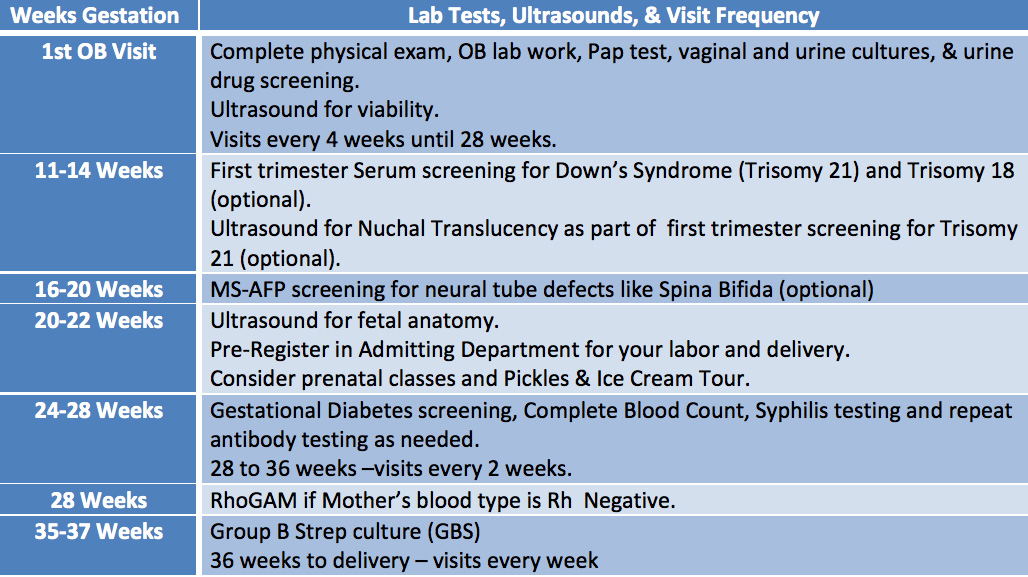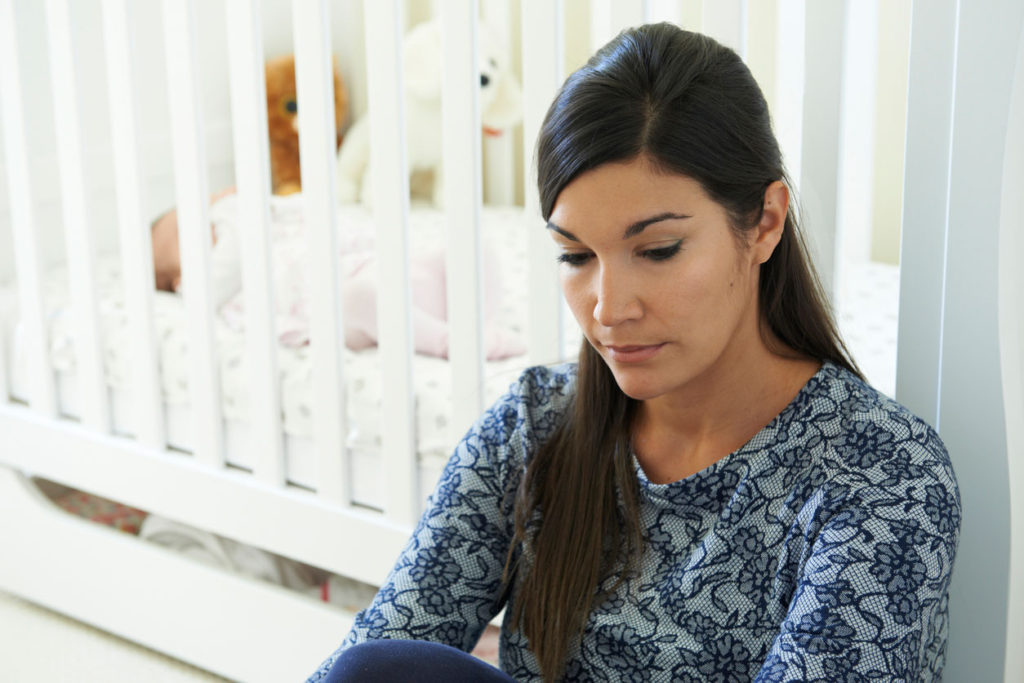Above is a list of what lab tests and ultrasounds to expect during your visits for a normal pregnancy.
Lab Testing During Pregnancy
CBC – Check for anemia and other indicators.
Blood Type and Rh Factor – Women who are Rh negative may need to receive RhoGAM at 28 weeks, after delivery, and at other times in pregnancy when they have bleeding or spotting. This prevents breakdown of your baby’s red blood cells in future pregnancies.
Antibody Screen – Checks for red blood cell antibodies.
Syphilis – A sexually transmitted infection that can cause birth defects.
HIV Test – Blood test screening for HIV. You can have HIV for years without symptoms. If you have HIV, there is a 1 in 4 change you could pass it to your baby. There are treatments available that can reduce the risk of HIV transmission to the baby.
Hepatitis B – Checks for hepatitis B infection in the mother to help prevent infection on the baby after delivery.
Rubella Immunity – Identifies if you are immune to the virus that causes Rubella. Rubella is an infection that can cause severe birth defects.
Pap Test – Screening test for cervical cancer.
Chlymydia and Gonorrhea – Sexually transmitted infections that can be potentially harmful to you and the baby if not treated promptly.
Urinalysis and Culture – Screening test for urinary tract infection.
28 Week Labs
One Hour Glucose Screen – Screens for diabetes in pregnancy. If screen is positive, will need a 3 hour glucose tolerance test.
CBC – Recheck for anemia
RPR – Recheck for syphilis
Antibody Screen – If RH negative
35 – 37 Week Labs
GBS Culture – Group B Strept is a common bacteria found in many women’s vaginal and rectal areas. It is not an infection in women, but may cause in infection in the baby if not treated (See section on “Group B Strept”).




